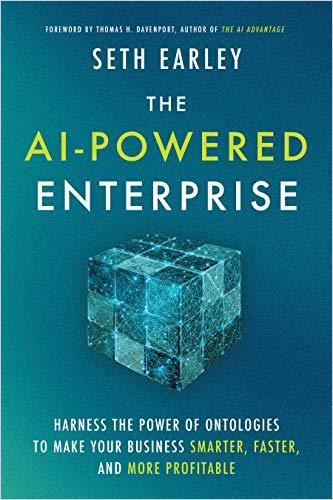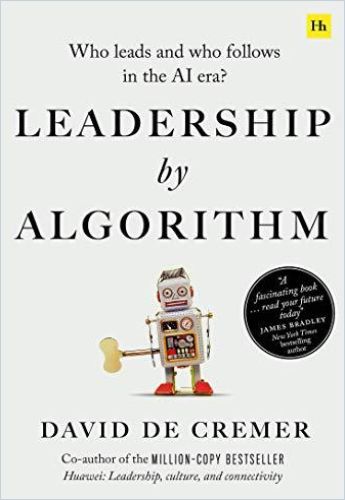“It’s Not an Evolution, It’s a Revolution”

getAbstract founders Patrick Brigger and Thomas Bergen were early internet adopters who saw great potential in starting a digital-native company. Now, 23 years later, in the midst of worldwide digital transformation, Brigger looks again to the future, this time to see the different ways artificial intelligence may play a role in business operations.
Pat, can you tell me a little about yourself, getAbstract and your connection to Switzerland?
Patrick Brigger: I had the privilege to be born in Switzerland. Thomas and I started out as friends. We’ve known each other since high school, and we were always looking for an interesting business model. We tried quite a few. Then we found getAbstract. It’s an idea everybody could grasp. We all did it in the universities: writing summaries of things we were supposed to learn and memorize and internalize. We didn’t see anything like that in the world. We set out to summarize all the great knowledge, ideally like the library of Congress. Today, we have about 25,000 titles, not yet the millions in the library of Congress. We try to find the best content available and summarize it.
And getAbstract is all digital?
Yes. It lives online. It’s a pure internet service. You can read summaries, and you can listen to them as well, which is very convenient. You can stream the audio on your phone. We believe with the right and most relevant knowledge people can make better decisions. It helps us in times of change, to change as a person and also within companies. Today, with all the fake news, it’s even more important to have the right, relevant knowledge you need, and to get it in such a way that you can use it to quickly take action. We want to summarize actionable knowledge that you can really apply to your life and to your business.
How do you think of artificial intelligence (AI) relative to writing summaries for getAbstract?
Interestingly enough, for maybe 15 years people have asked us about creating summaries automatically with AI. There’s a lot of research going on from Google, Microsoft and other companies doing exactly that. So far, we have not seen that you get the same level of quality when you look at a big document. Also, we’ve never found that the way AI writes text is as great as when a person, a trained journalist who is really brilliant at writing, writes the text.
Summaries have to be really well written, so it’s just a pleasure to read. So far, AI has not been able to do that, and we don’t think AI will be able to do it well within the foreseeable future.
When you think of integrating AI into getAbstract, what areas do you look at, aside from the actual summarizing?
One area where we have already integrated AI is to suggest the next best read to our clients based on their reading history. AI tremendously improves the recommendation selection, thereby increasing the usefulness of our service to the end-user. Another great example is the search engine. We use off-the-shelf APIs that you can license and those have AI components that improve the search.

I know we use an AI transcription service to get a first draft of interviews. What are some other ways you foresee getAbstract utilizing AI solutions?
We can use machine learning to provide us with tags or keywords from the written text, which not only helps the search engine, but also aids the editors in classifying the content into specific channels. We are not looking at replacing a person, but we’re looking at tools to help them perform their task more efficiently. We can use AI to check whether our channels or reading lists are still up to date. These are some ways AI is very useful.
What about evaluating potential AI integration?
We develop new products in what we call the getAbstract Lab. There we look at feedback questions and reflection questions. We do those manually but we are also experimenting with having those questions prepared automatically. We are experimenting with an AI-based tutoring app, which is interactive, and which will help you with whatever you have read – to assimilate and learn and understand it better – to help you advance more quickly in your learning journey.
What about sales or customer service chatbots?
Absolutely, this is a good example. We have so many people who call us or write to us saying, “I lost my password” or asking, “How do I change something in my account?” And these questions have typical, standard responses. And it would be great if a machine could recognize the problem based on text, then just give them the answer. It’s better for us; we have less work to do.
It’s a lot better for the client, because then they get the response immediately and don’t have to wait.
So, for customer service, there’s huge potential.
What about marketing?
In terms of marketing, to find lookalike audiences, to target specific customer segments at the right times, in the right mediums, et cetera, I think yes. Companies like Facebook and LinkedIn use AI very heavily and if you advertise on those platforms, they have those algorithms built in for you as an end user.

Are there any technologies that getAbstract tested that maybe didn’t work out the way you wanted it to? What were some of the challenges and lessons learned?
We ran an experiment to help editors classify a summary into certain channels. We worked with an algorithm we developed ourselves and we found that our channels were too diverse. Using AI algorithms consists of a learning part, then after that, executing an action. But we were not precise enough in the training part for the AI algorithm to be efficient. In that respect, the machine helped us recognize where we need to be more precise in the tasks we assign manually. It helped us learn how to better train it.
Are there other challenges that come to mind?
For me as an end user, I know that there is so much out there that we could use, but it’s not easy to find it and to integrate it. To integrate AI, from a technology point of view, it very quickly becomes expensive, even though you can get many of these algorithms for free. But I still haven’t found how we can experiment easily without having to train a person for six months until they finally get it, or hiring a consultant who will charge quite a lot. So, the challenge I have as an end user is that it is still quite expensive to experiment.
And have you been able to find good technology talent in Switzerland?
Yes, we’ve been lucky. We had some people that came right from HSLU, the University of Lucerne, and they are very engaged and are doing a great job. So, I’m happy about this. In general, good IT talent is a scarce resource.
What’s your perspective on AI and its use in business over the next few years?
I’m very excited about the times we’re living in right now, with all the technological changes: AI, blockchain, 3D printing, CRISPR in medical technology. All these things are very, very exciting. It’s not an evolution, it’s a revolution in many respects from where we were in 1980 when the internet started. Now it all comes together. I think AI will be helpful if we use it correctly. It’s a technology that can help humanity be better, to have less polluted air, a better environment, eliminate stupid jobs that are dangerous. I’m not afraid, for instance, that we’ll lose jobs; I think AI will also help with jobs. If we handle it right, it will help humanity to have a better life.
About the Author:
Patrick Brigger is co-founder and COO of getAbstract. He’s a graduate of the Swiss Federal Institute of Technology in Lausanne (Ph.D.) and former director of the Signal Processing Laboratory at the National Institutes of Health in Washington, D.C.
Prior to getAbstract, Patrick Brigger founded a US software development and IT consulting company in New York. At the same time, he was working at the IBM T.J. Watson Research Center in Hawthorne, New York.






